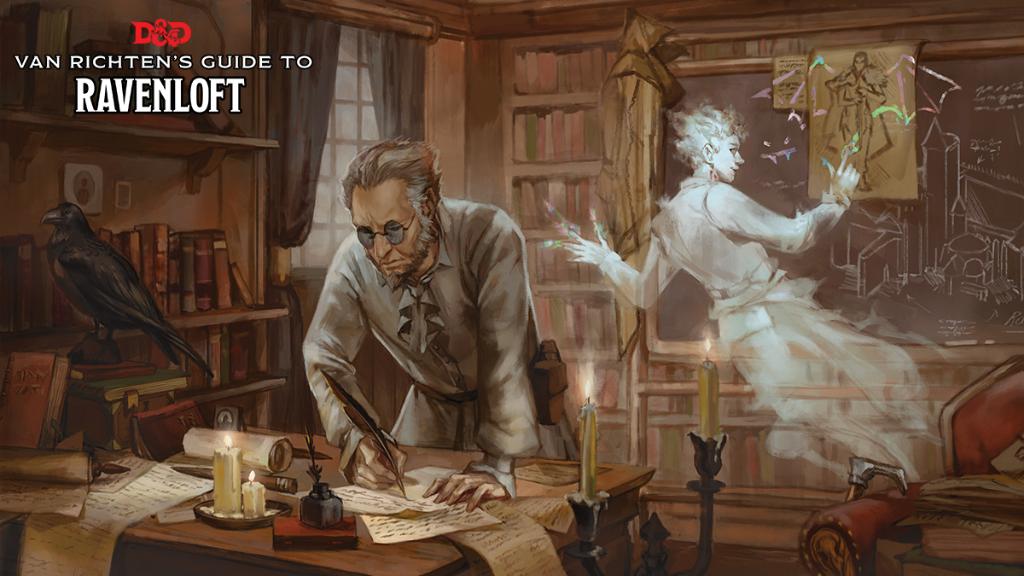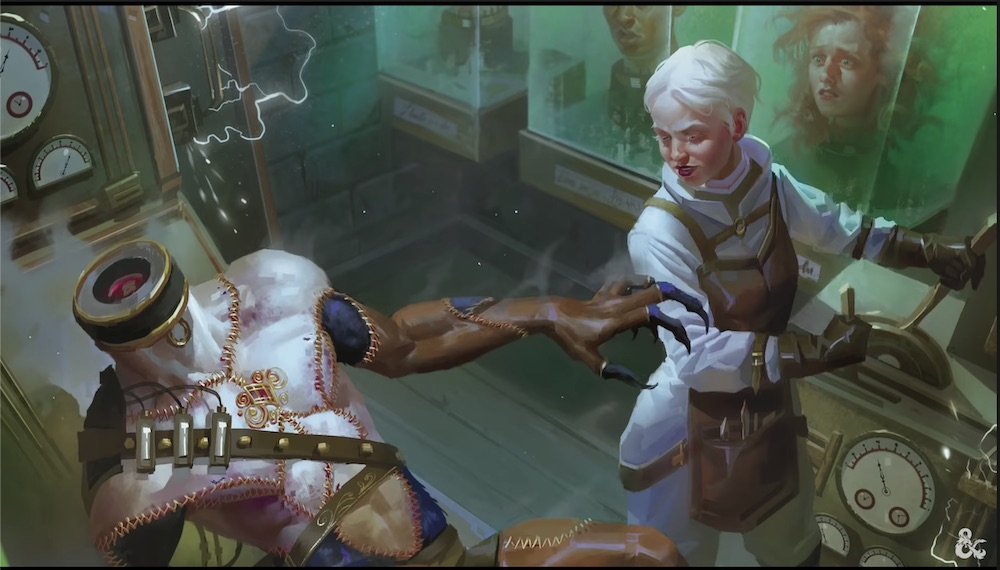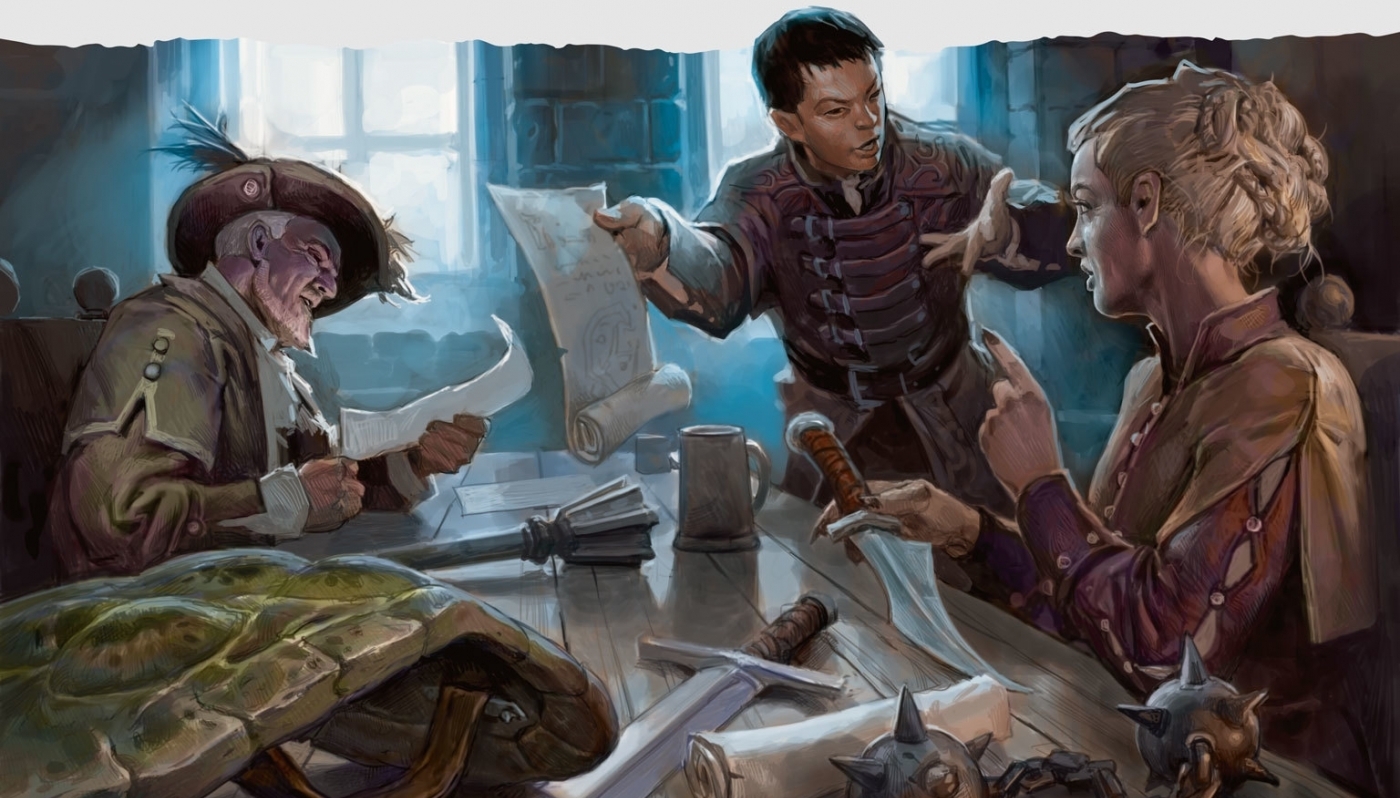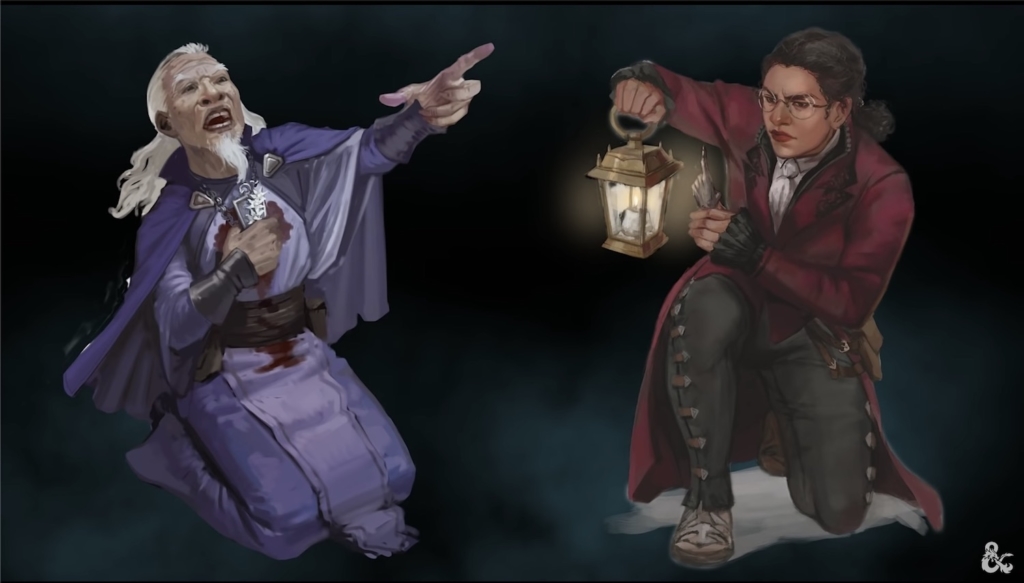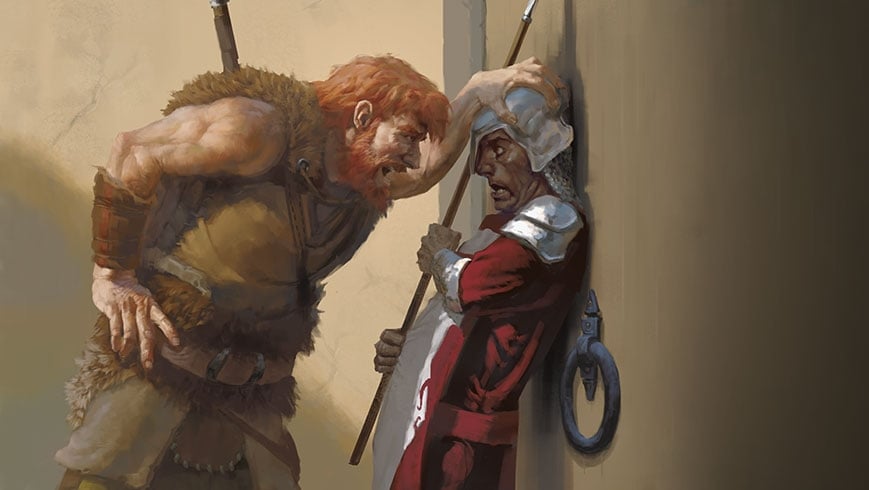D&D: Five Ways To Investigate A Mystery
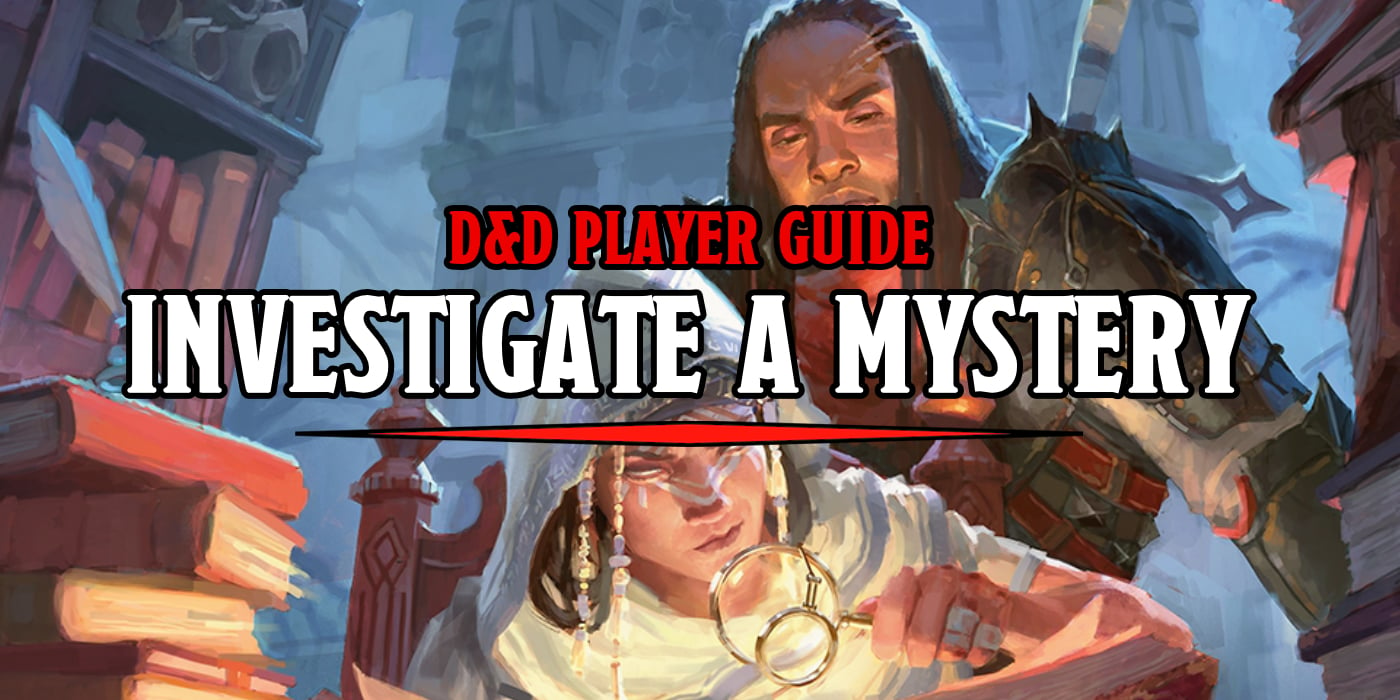
Got a mystery? Do your characters need to figure out “what happened here.” Here are some handy tricks to investigating a mystery in D&D.
Mysteries are a fun story type. They capture the imagination, they tickle that part of your brain that likes solving problems. And, looking back at some of the earliest adventures, they’re as much a part of D&D as levelling up. Of course, if you’re trying to investigate a mystery it can be tricky to know where to start. After all, there are dozens of articles out there to help DMs try and gently guide players to the answers. But if you’re a player, you might feel like you’re left to fumble about in the dark.
Don’t worry! We’re here to help. Take destiny into your own hands (and hope that you have a DM who understands that player agency is a great thing). The next time a mystery rears its head, you’ll know where to begin. We can start by outlining some of the steps you can take when you’re trying to solve a mystery. They might not always apply, but they’re a great jumping off point.
Investigate, Investigate, Investigate
When you come upon a mystery you know. Maybe you’ve found a dead body. Perhaps a strange door that won’t open, surrounded by magic runes. Really it’s any place where the forward action kind of comes to a pause. The best thing to do is start looking around the area.
The Investigation skill is a go-to for this. It’s all about looking for clues. But that’s not all it does. It’s also the skill that lets you “make deductions based on those clues,” to quote the Player’s Handbook. Point this out the next time you’re trying to figure out the clues ahead of you. Asking to make an Investigation check can be a great way to signal to the DM that you’re trying to put things together.
But Investigation isn’t the only thing that can help. Skills like Nature or Arcana or Religion might help offer up more information about your current situation, and once you have assembled your clues, you can use investigation to stitch it all together. Not finding anything where you are? Look further afield in adjacent rooms. Or elsewhere in the dungeon, if there’s places you haven’t explored yet.
Experimental Approach
If you can’t figure out what to do with the clues, it’s time to start trying things. After all, trial and error is a great tool for players in any game. You want to see what works and what doesn’t.
If you’re dealing with a puzzle, that might mean trying to interact with the strange crystal you’ve just found. Maybe you cast a cantrip or attempt an arcana check, or you might try hitting something with your axes. It might feel frustrating to think you have a solution, like casting Knock on a locked door only for it not to work, but even that’s a kind of progress: you’re learning what doesn’t work. The important thing is to keep trying things. It signals to the DM what you’re thinking. And more importantly, that you’re looking for some kind of feedback.
This doesn’t have to be like the DM saying “you think the crystal would respond well to fire.” But it could be something like “the crystal glows red when you cast light, but green when you cast fire.” Better yet, let the DM know you’re looking for info like that very explicitly. Try saying something like “as I hit the door, I look to see if there’s any reaction.”
Talking Things Out
A lot of times one of the more direct methods you have of getting information about the world is looking for someone to talk to. Maybe you can find an NPC who witnessed the murder, or you might ask locals in the area if they saw and/or heard anything happening the night of the incident.
Or if you’re investigating a puzzle, you might ask a sage, or go consult with a historian or someone else whom your character would think might have expertise in the puzzle at hand. Whatever you’re dealing with, it doesn’t (normally) hurt to ask for help.
This is where skills like persuasion or deception or even intimidation might come in handy.
Magic
It’s D&D and that means there’s magic. If you’re playing a spellcaster, or there’s someone in your party who is, certain spells might help you in this situation. If you’re playing with characters like Clerics or Druids or Wizards who prepare their spells from a larger list, they might be able to swap out spells for something more suited to helping you out.
You could try charm person on someone in the dungeon to ask them if they know how to get past that strange locked door, or maybe you can use detect magic to uncover which runes are active. And sometimes magic might help you solve a problem. Spells like Knock or Speak with Dead can often help open doors (literal and metaphoric) that you wouldn’t otherwise be able to.
Brute Force
If all else fails and you’re truly stuck, well, you can always try and brute force your way through something. If you’re trying to unlock a door into a temple, sure you might not be able to get past the door – but that temple exists in the world. You could probably hire a bunch of miners to try and breach the walls.
If you’re trying to solve a murder, the brute force approach becomes a little more difficult to take, since you can’t just go around accusing everyone you meet of doing it – but spells like Zone of Truth and a very long time of demanding “did you kill them” might at least get you into a fight that can help move you on to the next part.
Bonus: Know When to Walk Away
Sometimes, if you can’t think of the answer, it might help to leave the situation for a while. If your characters can retreat, or if you can take a break for a few minutes, it might just stop you from beating your head against the wall, metaphorically, while you try to figure out which NPC’s head you’re going to beat against the wall, literally.
Happy Adventuring!


